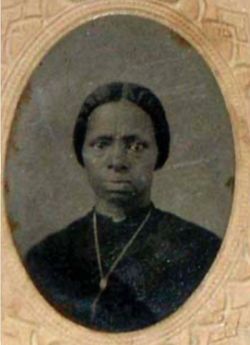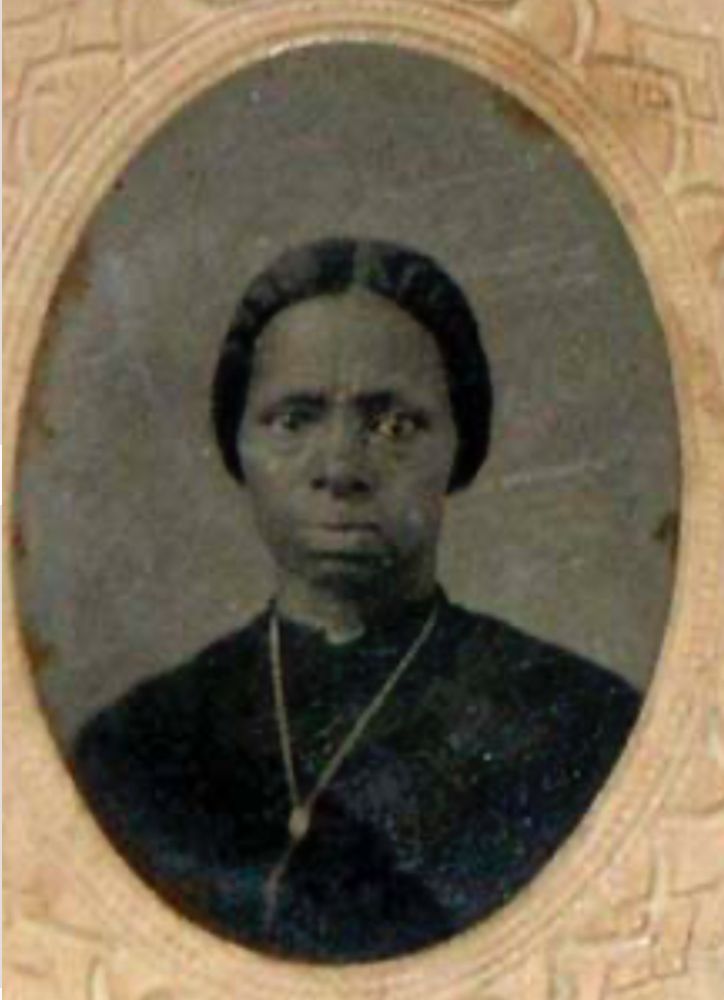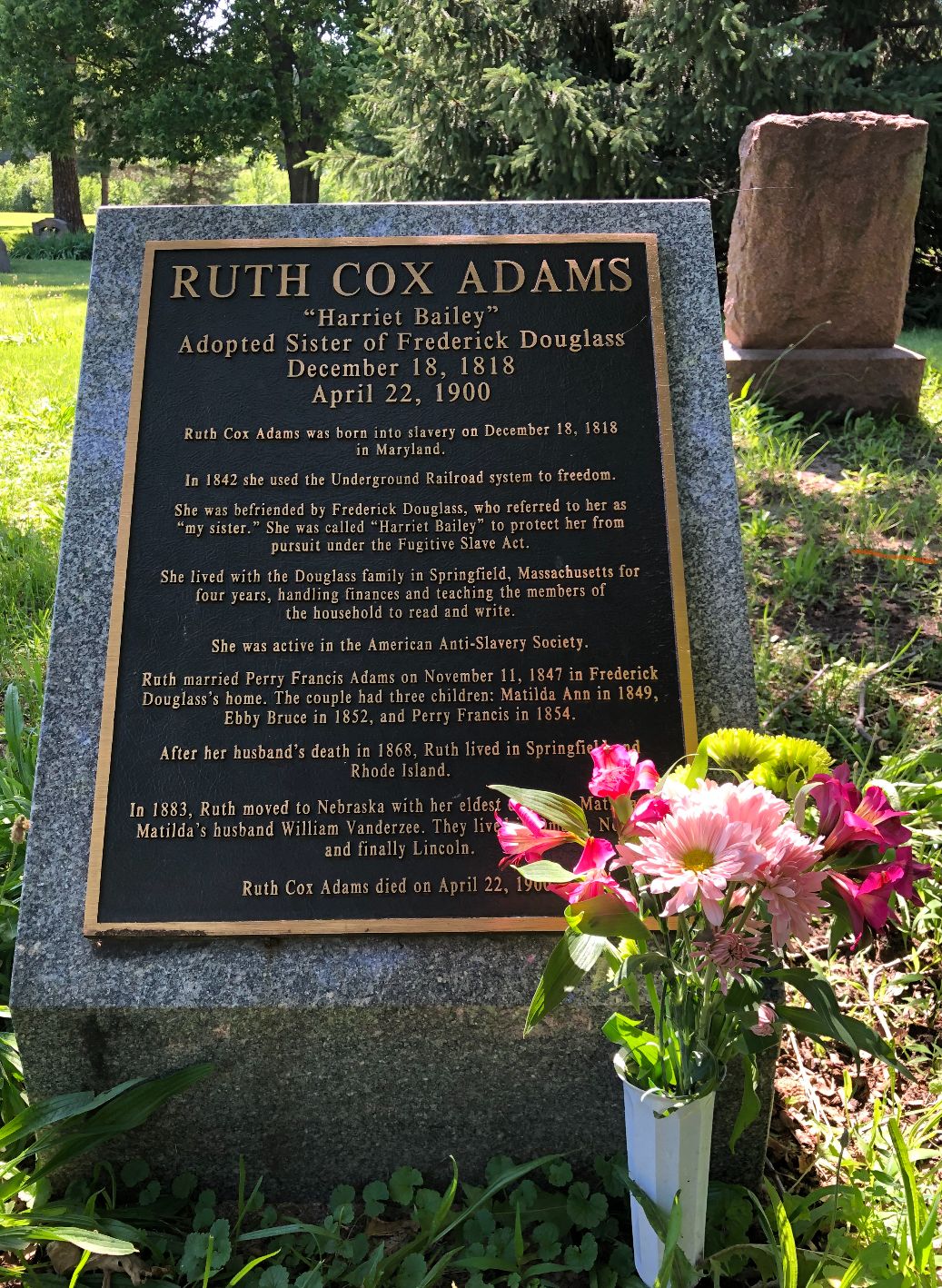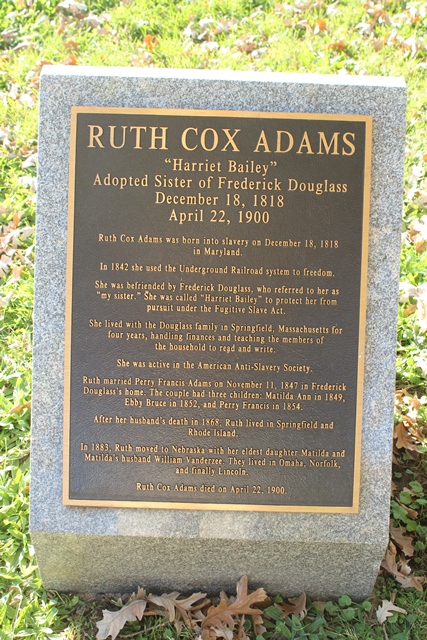In 1840, Ruth escaped from slavery. In her autobiographical writing, she recalls having heard Frederick Douglass speak against slavery, and remembered his having met her during her escape North. She believed that Douglass had helped to orchestrate her escape.
Douglass, having also been born in Talbot County was convinced that Ruth was one of his sisters, who had been sold into slavery. He gave Ruth the name Harriet (also his mother's name) and took her to live with his wife and children at their home in Lynn, Massachusetts. In additon to resembling his sister, "Harriet" had a brother named Leon Bailey. Bailey had been Douglass' name under slavery, before he changed it after his escape. It seems likely that Harriet's brother may have been a cousin of Douglass'.
Ruth served as a tutor at the Douglass home from 1840 until her marriage to Perry Adams in 1847.
By this time Douglass had become an interationally renowned lecturer. After passage of the Fugitive Slave Law in 1850, the Adams moved to Haiti for a few years to avoid recapture and return to slavery. Douglass became the preeminent leader of African Americans for his vocal condemnation of slavery and of the Fugitive Slave Law. He was a friend and supporter of John Brown, and had to flee the country to avoid being arrested for conspiracy in the Brown Plot (of which he was innocent).
During the Civil War Douglass worked as a recruiter and after the war he held several patronage posts with the Federal goverment. He lost some status in the Afro-American community in the late 1870s because of his disapproval of the Exodus of Blacks out of the South.
In the meantime, Adams' husband had died and she joined her daughter, Matilda Ann and her son-in-law, William Vanderzee, in migrating west, to Omaha, Nebraska, in 1884.
The Adams' and Douglass' fell out of touch for nearly ten years. Then in 1893, after lecturing at the Chicago World's Fair, Douglass tried to find Adams in Omaha. He was unsuccessful but learned from a Norfolk newspaper shortly afterward of her whereabouts. They re-established correspondence but were not to meet again as Douglass died in 1895.
Adams lived until 1900 and was buried at Wyuka Cemetery in Lincoln, Nebraska.
Bio credit: http://nebraskahistory.org
Information provided by Capt. Dave, #48029001
In 1840, Ruth escaped from slavery. In her autobiographical writing, she recalls having heard Frederick Douglass speak against slavery, and remembered his having met her during her escape North. She believed that Douglass had helped to orchestrate her escape.
Douglass, having also been born in Talbot County was convinced that Ruth was one of his sisters, who had been sold into slavery. He gave Ruth the name Harriet (also his mother's name) and took her to live with his wife and children at their home in Lynn, Massachusetts. In additon to resembling his sister, "Harriet" had a brother named Leon Bailey. Bailey had been Douglass' name under slavery, before he changed it after his escape. It seems likely that Harriet's brother may have been a cousin of Douglass'.
Ruth served as a tutor at the Douglass home from 1840 until her marriage to Perry Adams in 1847.
By this time Douglass had become an interationally renowned lecturer. After passage of the Fugitive Slave Law in 1850, the Adams moved to Haiti for a few years to avoid recapture and return to slavery. Douglass became the preeminent leader of African Americans for his vocal condemnation of slavery and of the Fugitive Slave Law. He was a friend and supporter of John Brown, and had to flee the country to avoid being arrested for conspiracy in the Brown Plot (of which he was innocent).
During the Civil War Douglass worked as a recruiter and after the war he held several patronage posts with the Federal goverment. He lost some status in the Afro-American community in the late 1870s because of his disapproval of the Exodus of Blacks out of the South.
In the meantime, Adams' husband had died and she joined her daughter, Matilda Ann and her son-in-law, William Vanderzee, in migrating west, to Omaha, Nebraska, in 1884.
The Adams' and Douglass' fell out of touch for nearly ten years. Then in 1893, after lecturing at the Chicago World's Fair, Douglass tried to find Adams in Omaha. He was unsuccessful but learned from a Norfolk newspaper shortly afterward of her whereabouts. They re-established correspondence but were not to meet again as Douglass died in 1895.
Adams lived until 1900 and was buried at Wyuka Cemetery in Lincoln, Nebraska.
Bio credit: http://nebraskahistory.org
Information provided by Capt. Dave, #48029001
Family Members
Sponsored by Ancestry
Advertisement
Explore more
Sponsored by Ancestry
Advertisement




